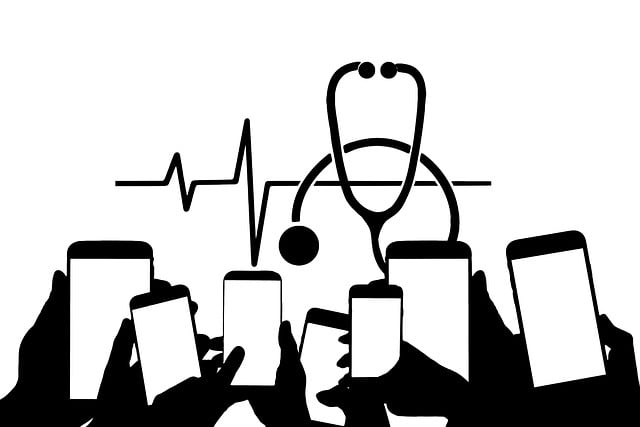The integration of an online doctor for semaglutide revolutionizes diabetes care through remote monitoring, offering significant benefits to type 2 diabetics. This approach enhances convenience, treatment adherence, and health outcomes by enabling virtual check-ins, tracking key metrics, and providing timely interventions. With secure video conferencing and digital health tools, healthcare providers can efficiently manage complex treatments like semaglutide therapy from a distance, empowering patients to actively participate in their care journey without frequent clinic visits. AI-driven insights further streamline care coordination and personalize treatment plans.
In today’s digital era, remote monitoring of semaglutide treatment is transforming diabetes care. This innovative approach allows healthcare providers to track patient progress without in-person visits, leveraging technologies like online doctors and telemedicine platforms. Understanding semaglutide’s unique benefits and integrating remote monitoring into healthcare systems offers patients with diabetes improved access, convenience, and outcomes. Discover how online doctor services enhance semaglutide management, explore the latest digital health solutions, and learn best practices for effective remote monitoring programs.
Understanding Semaglutide Treatment and Remote Monitoring

Semaglutide is a medication widely used in diabetes management, known for its ability to lower blood sugar levels. This drug, often prescribed by healthcare providers, works by mimicking a natural hormone that slows down digestion and reduces appetite. Understanding semaglutide treatment involves grasping these mechanisms and recognizing the potential benefits—such as improved glycemic control and weight loss—for patients with type 2 diabetes.
Remote monitoring of this treatment is a game-changer in healthcare, especially when facilitated by online doctor consultations for semaglutide. Through telemedicine platforms, providers can track patient progress, adjust medication dosages, and offer timely interventions without the need for physical visits. This approach enhances accessibility, convenience, and adherence to treatment plans, ultimately leading to better health outcomes for patients managing their diabetes from the comfort of their homes.
The Role of Online Doctors in Semaglutide Management

The integration of remote monitoring into healthcare has seen a significant rise in the use of online doctors, particularly in managing complex treatments like semaglutide therapy. An online doctor for semaglutide plays a crucial role in providing continuous care to patients who require this medication, often used in diabetes management. Through secure video conferencing platforms and digital health tools, these virtual healthcare providers offer consultation, monitor patient progress, and make adjustments to treatment plans as needed.
This approach allows for more efficient tracking of semaglutide’s effects, enabling doctors to swiftly address any adverse reactions or suboptimal results. It also facilitates better patient engagement, as online visits can be more convenient and accessible, encouraging regular check-ins and adherence to the prescribed treatment regimen.
Benefits of Remote Monitoring for Patients with Diabetes

For patients living with diabetes, remote monitoring offers a game-changer in managing their Semaglutide treatment. This innovative approach allows patients to receive regular check-ins and adjustments from their healthcare providers without the need for frequent in-person visits. An online doctor for semaglutide can track key metrics such as blood sugar levels, assess medication adherence, and provide timely interventions based on data insights – all while empowering patients to actively participate in their care journey. This not only enhances convenience but also improves treatment adherence and clinical outcomes.
Technologies Enabling Remote Access to Semaglutide Therapy

The digital revolution has brought about innovative technologies that facilitate remote monitoring, transforming the way healthcare providers manage semaglutide treatment. Online platforms and telemedicine play a pivotal role in this evolution, allowing patients to connect with their doctors virtually for regular check-ins and dose adjustments. This approach is particularly beneficial for individuals on long-term semaglutide therapy, ensuring consistent care without frequent clinic visits.
Through secure video conferencing tools, patients can have face-to-face consultations with their online doctor for semaglutide, discussing treatment progress, side effects, and any necessary modifications to their medication regimen. Additionally, remote monitoring systems enable healthcare providers to track key health metrics, such as blood sugar levels and weight changes, remotely, thereby offering a comprehensive overview of patient well-being without the need for frequent in-person assessments.
Ensuring Patient Safety and Privacy in Virtual Care

When it comes to remote monitoring of semaglutide treatment, patient safety and privacy are paramount. As more individuals opt for online doctor consultations for managing their semaglutide therapy, ensuring secure digital communication becomes critical. Healthcare providers must adhere to strict data protection protocols to safeguard sensitive medical information. This involves employing encrypted platforms, secure login mechanisms, and regular software updates to prevent unauthorized access.
Privacy measures also extend to educating patients about the importance of keeping their personal devices secure and being cautious when sharing health details online. With proper precautions in place, virtual care can offer a convenient and safe approach for monitoring semaglutide treatment, allowing healthcare providers to offer personalized guidance while maintaining patient confidentiality.
Best Practices for Effective Remote Monitoring Programs

Effective remote monitoring programs for semaglutide treatment require a structured approach and best practices to ensure patient safety and care. Healthcare providers should establish clear protocols for regular virtual check-ins, utilizing secure video conferencing tools to create a comfortable environment for patients to discuss their experiences. These sessions can be tailored to individual patient needs, allowing doctors to remotely assess medication adherence, side effects, and overall treatment outcomes.
Implementing digital health platforms is key, where patients can log their semaglutide dosages, meals, and any symptoms or concerns. Online doctor consultations should be integrated into this system, enabling real-time communication and quick issue resolution. Additionally, providing educational resources and easy access to support services empowers patients to actively participate in managing their diabetes, fostering a successful remote monitoring experience.
Integrating Remote Semaglutide Monitoring into Healthcare Systems

Integrating remote semaglutide monitoring into healthcare systems offers a promising approach to enhancing patient care, especially for those managing type 2 diabetes. With the rise of digital health solutions, an online doctor for semaglutide can facilitate regular check-ins and provide critical support outside traditional clinical settings. This technology enables patients to receive personalized guidance and adjustments to their treatment plans without the need for frequent in-person visits.
Healthcare providers can leverage remote monitoring systems to track patient progress, including glucose levels, weight changes, and side effects associated with semaglutide therapy. Such data provides valuable insights, allowing doctors to make informed decisions, adjust dosages, and offer timely interventions. This innovative practice streamlines care coordination, improves medication adherence, and ultimately contributes to better diabetes management outcomes.
Future Perspectives: AI and Digital Health Solutions

The future of remote monitoring and healthcare management looks promising with the integration of Artificial Intelligence (AI) and Digital Health Solutions. AI-powered tools can analyze vast amounts of patient data, including semaglutide treatment regimens, to provide personalized insights and recommendations. This technology has the potential to enhance the efficiency of healthcare providers by streamlining the review process and enabling them to offer more tailored care.
With an online doctor for semaglutide treatments, patients can receive continuous support and monitoring remotely. AI algorithms can detect patterns, predict outcomes, and flag any anomalies, ensuring prompt intervention if needed. This not only improves patient satisfaction but also reduces the administrative burden on healthcare professionals, allowing them to focus more on complex cases and personalized care plans.
